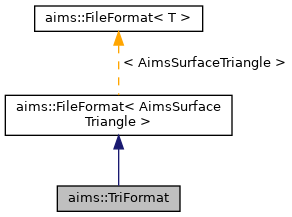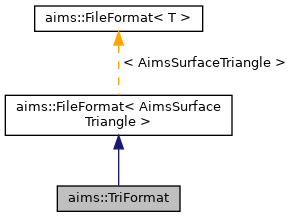 |
aimsdata
4.7.0
Neuroimaging data handling
|
 |
aimsdata
4.7.0
Neuroimaging data handling
|
#include <aims/io/baseFormats_mesh.h>


Public Member Functions | |
| virtual | ~TriFormat () |
| virtual bool | read (const std::string &filename, AimsSurfaceTriangle &obj, const carto::AllocatorContext &context, carto::Object options) |
| virtual bool | write (const std::string &filename, const AimsSurfaceTriangle &vol, carto::Object options=carto::none()) |
the base class has a default implementation which only returns false so if your new format only supports read operations, you won't have to bother about the write() function More... | |
 Public Member Functions inherited from aims::FileFormat< AimsSurfaceTriangle > Public Member Functions inherited from aims::FileFormat< AimsSurfaceTriangle > | |
| virtual | ~FileFormat () |
| virtual AimsSurfaceTriangle * | read (const std::string &filename, const carto::AllocatorContext &context, carto::Object options) |
| Creates an object and reads it. More... | |
| carto::GenericObject * | read (const std::string &, const carto::AllocatorContext &, carto::Object) |
Definition at line 63 of file baseFormats_mesh.h.
|
virtual |
|
virtual |
Implements aims::FileFormat< AimsSurfaceTriangle >.
|
virtual |
the base class has a default implementation which only returns false so if your new format only supports read operations, you won't have to bother about the write() function
Reimplemented from aims::FileFormat< AimsSurfaceTriangle >.